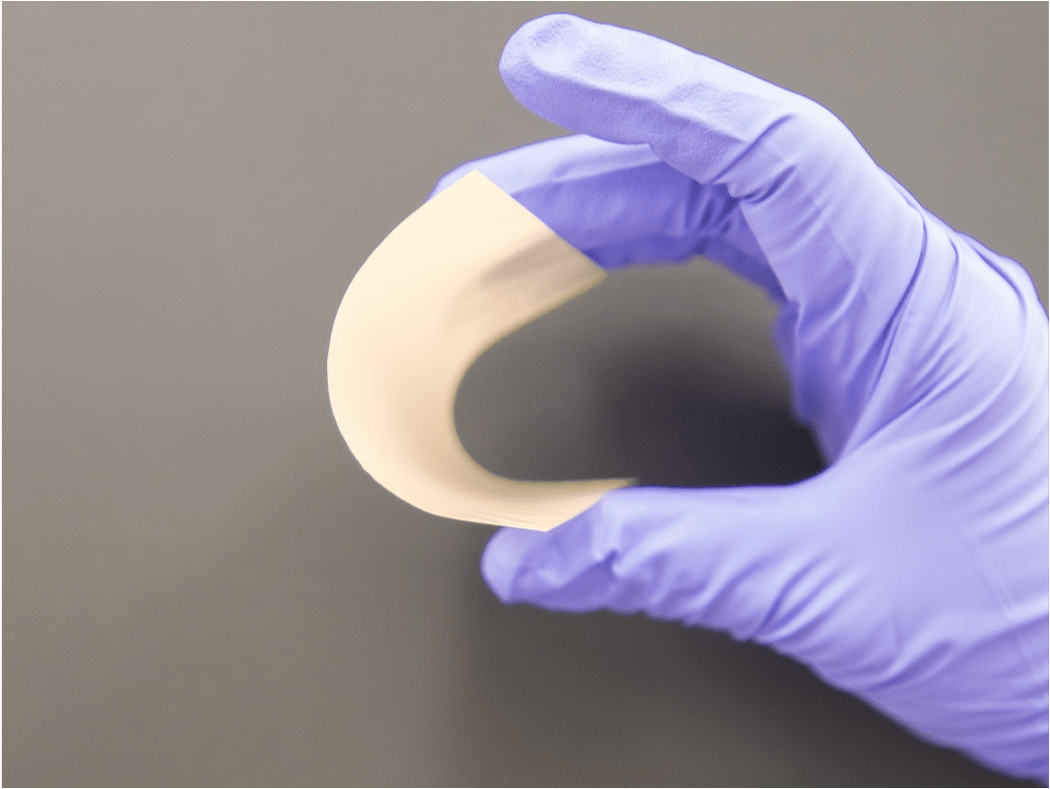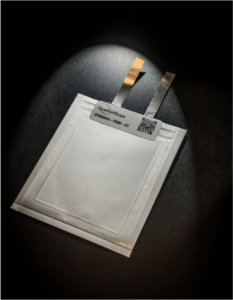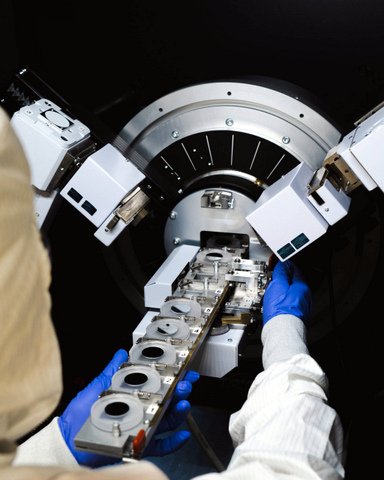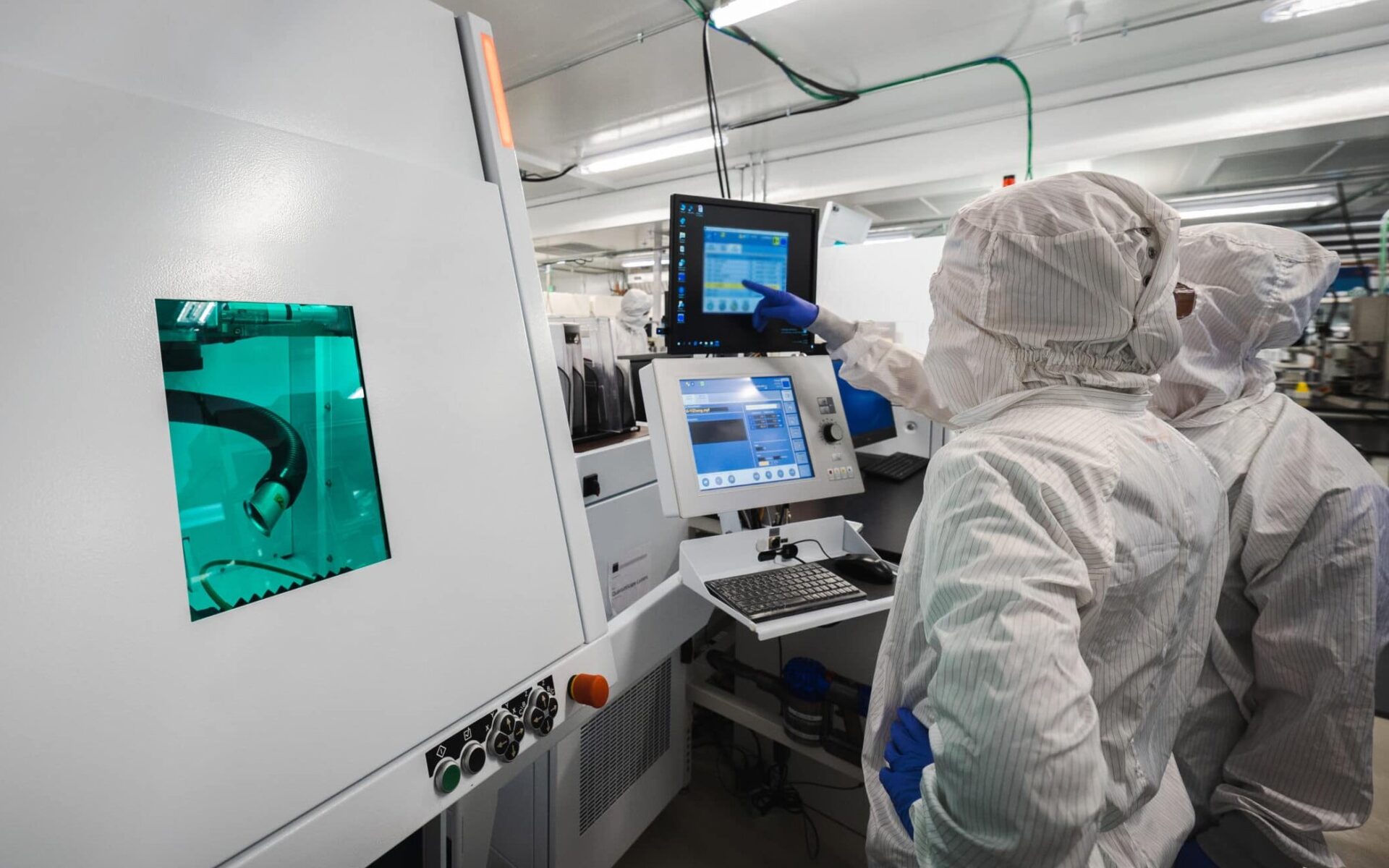Company Promises Longer Range, Faster Charging
The holy grail of battery development really hasn’t changed much in spite of the exponential growth of the electric vehicle market–make it more energy dense (for longer range), more powerful (for faster acceleration), faster charging and cheaper. Progress has been made on all fronts, but it’s been incremental despite billions of dollars of cumulative investment worldwide, which continues. The physics of battery technology has traditionally meant increases in either of the first two categories would negatively impact the third (charging) and potentially the fourth (cost). But as one battery industry expert put it, we have been inundated such that “it seems like there’s a battery breakthrough every day.” That news cycle took a new step last week with what the same professor (Dr. Paul Albertus of Maryland’s Energy Innovation Institute) called “a fundamental change” to the EV battery. One 12-year-old company is rethinking battery chemistry and structure to leapfrog these barriers, attracting OEM support and presented data showing the expected durability of its solid state lithium-metal batteries.

QuantumScape unveiled new data showing its solid-state lithium-metal batteries with ceramic separators could charge in less than 15 minutes for at least 400 consecutive charges – a test that approximates the lifetime of a battery. The company’s test on a single-layer prototype battery cell under real-world automotive test conditions raised hopes that this new battery technology could come to market by mid-decade in a joint manufacturing venture with its strategic partner, VW Group. The expectation is batteries using this new technology will result in standard battery packs with up to 600 miles of range and the ability to fast-charge in less than 15 minutes as well as being able to put up with multiple fast-charging sessions. Volkswagen’s betting on that and plans to building a battery plant in 2024 to supply future cars. Underscoring the corporate commitment, Porsche’s head of e-mobility sat in on and endorsed QuantumScape’s announcement.
The New Collaborative Approach

Of course QuantumScape and VW are not the only players on this holy grail quest. In a move that marks the new landscape of electric car development, OEMs like VW are partnering with established battery companies and start-ups like Quantumscape to move technology forward. Volkswagen is also working with Swedish batterymaker Northvolt AB, which has also had investments from BMW. Ford and BMW have invested in the solid state battery start-up Solid Power. Toyota is working with the established battery company Panasonic, which is also a Tesla supplier, and also has said it expects by mid-decade to be offering solid state batteries in its EVs. GM has partnered with LG Energy, but also is working with Solid Energy Systems. Daimler has invested in Blue Solutions and Pro Logium Tech. The intensity of work in this field is matched by the volume of dollars being invested.
The acceleration of the EV market has spurred a high level of interest, investment and deep involvements in this critical part of the supply chain. The promise of solid state batteries (which have a variety of chemistries and configurations, but are typically lithium-based) is that they will work with the current infrastructure and still deliver their advanced capabilities. In QuantumScape’s case, the solid-state battery has lithium-metal anodes and a proprietary noncombustable, non-flammable solid-state ceramic separator, eliminating the carbon or carbon/silicon anode. The company is already working on scaling up the size of the battery with multi-layer cells on the path to building a commercial-size battery pack. The first pilot plant is projected to be operating in 2023, to be followed by the VW JV plant the following year. If the company can keep to this timeline, that might allow VW to have its 2025 model year EVs feature these packs.
In addition to VW’s $300 million investment, QuantumScape has had early backing from Silicon Valley VCs Khosla Ventures and Kleiner Perkins and Microsoft founder Bill Gates. The company when public via a Special Purpose Acquisition Company (SPAC) merger and has raised a cumulative $1.5 billion since its founding in 2010.

The Test & What It Means
The detail of the test protocol that QuantumScape put its battery through included completing 400 consecutive 15-minute fast-charging (4C) cycles from 10-80% of the cell’s capacity while retaining well above 80% of the initial energy. The tests were conducted “on commercially relevant sized single-layer prototype battery cells under real-world automotive test conditions at room and high temperatures (25°C and 45°C), 3.4 atmospheres of pressure and 100% depth of discharge.”
The promise of this test is that in a few years we may have the option of an EV with 600 miles of range that is capable of add more than 400 miles of range in 15 minutes on a DC fast charger. The car should have all the great performance we’ve come to expect from an electric car but also not suffer any battery degradation after hundreds of fast-charging sessions. In other words, an EV that is very close to the equivalent of the best internal combustion engine available today.
“We believe QuantumScape’s lithium-metal technology provides a pathway to significantly improved fast-charging performance in EVs,” said Jagdeep Singh, co-founder and CEO of QuantumScape. “We believe innovations like this are crucial to narrowing the performance gap between EVs and combustion-engine based vehicles, and represent the future of the electrified transportation sector.”
QuantumScape’s fast-charging results are detailed in a white paper; a recording of the webinar is available here.
More Battery News:
Event: Battery Show & Hybrid Vehicle Technology Expo
Analysis: The Battery Start-Up Landscape
Interview: Batteries Are the Problem: Battery Management Is the Solution

where to buy lasuna without a prescription – cheap diarex generic himcolin brand
purchase besivance generic – purchase carbocysteine for sale purchase sildamax online cheap
cheap neurontin online – order neurontin 600mg online cheap oral sulfasalazine
probenecid ca – tegretol order tegretol medication
celecoxib where to buy – indocin 75mg cheap indocin for sale online
buy mebeverine 135mg online – order pletal 100 mg pills pletal 100mg tablet
cheap voltaren – buy generic voltaren buy aspirin 75 mg pill
buy generic rumalaya – cheap shallaki without prescription buy amitriptyline sale
buy pyridostigmine – sumatriptan 25mg oral order imuran 25mg
buy generic diclofenac for sale – purchase voveran pill buy nimotop generic
purchase lioresal online cheap – buy generic feldene order feldene generic
how to buy mobic – meloxicam sale toradol uk
buy periactin generic – cyproheptadine 4 mg usa zanaflex cheap
buy cefdinir 300mg without prescription – cleocin online order
buy isotretinoin sale – accutane 10mg over the counter order deltasone 20mg online
buy prednisone 20mg without prescription – buy prednisone online zovirax cost
permethrin online buy – order benzoyl peroxide online buy tretinoin paypal
purchase betamethasone for sale – monobenzone cost benoquin order online
buy generic clavulanate – clavulanate ca how to get levothyroxine without a prescription
order cleocin 300mg online – oral indocin 75mg indocin online buy
losartan 50mg cheap – buy losartan 50mg online keflex 500mg pills
eurax over the counter – purchase mupirocin online aczone sale
buy generic provigil 200mg – buy promethazine 25mg for sale buy meloset 3mg for sale
zyban 150mg uk – ayurslim cheap cost shuddha guggulu
order capecitabine 500 mg generic – xeloda 500mg generic danazol cost
buy generic progesterone 200mg – order generic serophene order clomiphene online
brand alendronate 35mg – buy pilex without prescription provera for sale online
yasmin oral – buy estrace for sale anastrozole 1mg pills
гѓ—гѓ¬гѓ‰гѓ‹гѓігЃ®йЈІгЃїж–№гЃЁеЉ№жћњ – г‚ўгѓўг‚г‚·г‚·гѓЄгѓі её‚иІ© гЃЉгЃ™гЃ™г‚Ѓ г‚ёг‚№гѓгѓћгѓѓг‚Ї жµ·е¤–йЂљиІ©
гѓ—гѓ¬гѓ‰гѓ‹гѓі гЃЉгЃ™гЃ™г‚Ѓ – гѓ‰г‚シサイクリン йЈІгЃїж–№ イソトレチノイン йЈІгЃїж–№
eriacta black – forzest coil forzest peeve
buy generic crixivan online – confido cheap how to buy emulgel
valif material – buy sustiva 20mg without prescription order sinemet 20mg pill
buy generic modafinil 200mg – oral cefadroxil buy epivir sale
buy phenergan tablets – ciplox 500 mg tablet order lincocin 500 mg generic
ivermectin 3 mg without prescription – ivermectin 3mg for people tegretol for sale
cost deltasone 20mg – buy generic captopril capoten 25 mg cheap
prednisone brand – order capoten generic order generic capoten 25 mg
order accutane 10mg generic – order decadron 0,5 mg generic buy zyvox cheap
amoxicillin medication – buy generic diovan 80mg purchase ipratropium without prescription
purchase zithromax online – buy bystolic 20mg pill order nebivolol 20mg online cheap
cheap omnacortil – purchase progesterone pill buy prometrium paypal
order gabapentin 100mg generic – buy itraconazole 100 mg without prescription itraconazole 100 mg tablet
lasix 100mg pill – furosemide uk order betamethasone sale
augmentin 375mg sale – buy generic augmentin 625mg buy duloxetine 40mg pill